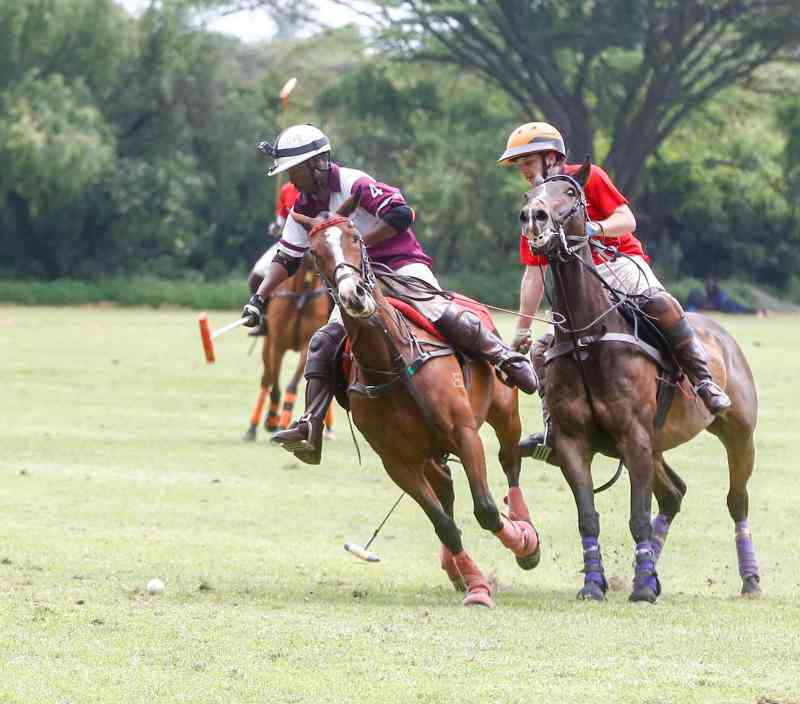Trade in ivory and rhino horns became so lucrative in 2014 that it threatened conservation gains made since establishment of the first national park in Kenya in 1946.
This was the year when poaching reached alarming levels, forcing conservationists to demand that President Uhuru Kenyatta declare it a national disaster.
Reports of marauding poachers having a field day both inside and outside protected national parks and game reserves hit newspaper headlines almost on a daily basis between January and June of this year.
Alarmed by the unprecedented raise in poaching, President Kenyatta issued a terse but stern warning to poachers, with conservationists pushing for amending the law to give stiffer penalties to poachers.
The Government was to initiate robust anti-poaching measures - from stronger legislation to specialised legal mechanisms and upgraded enforcement - in a bid to underscore the country’s resolve to secure the survival of iconic species like the elephant and the rhino.
But despite the warning, the rise in poaching continued even in the most heavily guarded parks, and in broad daylight, with little fear of tough laws designed to stem the wave of killings.
By September, 2014, the country had lost 100 elephants and at least 50 rhinos. Lake Nakuru National Park was the hardest hit by the poaching menace in the year under review.
The attacks in the protected areas like the Nairobi National Park led to an uproar from citizens and conservation organisations alike.
They demanded that poaching be declared a national disaster.
In March, veteran conservationists Dr Richard Leakey who once served as the Kenya Wildlife Service (KWS) director, joined other Kenyans in calling for drastic action be taken against the menace, warning that known poaching ringleaders were operating with “outrageous impunity.”
The Government responded and vast hauls of ivory tusks were repeatedly seized at the port of Mombasa.
With the slaughter of elephants showing no sign of slowing down, Dr Paula Kahumbu, another renowned conservationist decided to take the fight to the poachers.
She lauded the ‘hands off our elephant’ campaign and managed to persuade First Lady Margaret Kenyatta to join in.
Her campaign managed to push dealers in poaching away from the country by making it difficult to operate.
“It is now war. We are losing our national heritage, we are losing our elephants. It is happening inside our national parks; rangers are being shot by other rangers because they are poaching,” Dr Kahumbu was quoted in the media at the height of the poaching menace.
Stay informed. Subscribe to our newsletter
KWS, the body tasked with wildlife protection and management, attributed the rise in poaching on the Asian black market where there was demand in rhino horn that was being sought after as an ingredient in traditional medicine and was said to be more expensive than the equivalent weight in gold.
Ivory from elephants was also sought out for jewellery and decorative objects.
KWS Director William Kiprono’s attempts to allay fears that it has been overwhelmed in discharging its mandate and that the situation was under control was met with harsh criticism from Kenyans and the media.
Bold move
He admitted to the media that the service was facing challenges in manpower in terms of warders to man the parks, but said the Government had allocated Sh300million for the training of more warders.
In a bold move to stem the rising incidents of poaching, Kiprono cracked the whip by suspending six senior officers suspected of mismanagement and poaching.
To further arrest the situation, the 575 rangers who graduated in August were deployed to the country’s capacity to address the plight of elephants emanating from poaching, habitat loss and human-elephant conflict.
This happened in the backdrop of a campaign by the local and international media-demanding action.
In a rare common call, leading newspapers demanded action and accused KWS of sleeping on the job and trying to cover up the real extent of the poaching problem.
“Poaching is a national disaster,” The Standard said in its editorial. “KWS is being economical with the truth when it argues that poaching is not an immediate danger.”
“Those charged with preserving game must come out of their lethargy and realise if it takes limiting access to our national parks to preserve endangered species for posterity, losing revenue from tourism for a while will be a small price to pay for long-term gain.” Many conservationists said the ministry’s downplaying of the “brazen slaughter” was a “big surprise.”
In June, the United Nations Development Programme teamed up with the office of the First Lady, Margaret Kenyatta, to empower African communities to combat poachers and conserve wildlife.
The “Hands off our Elephants campaign was launched to protect the elephant population that was declining at an alarming rate.
As at the end of 2013, Kenya had an elephant population of at least 30,000 - the fourth largest in the world and a rhino population of 1041 - the third largest in the world.
 The Standard Group Plc is a
multi-media organization with investments in media platforms spanning newspaper
print operations, television, radio broadcasting, digital and online services. The
Standard Group is recognized as a leading multi-media house in Kenya with a key
influence in matters of national and international interest.
The Standard Group Plc is a
multi-media organization with investments in media platforms spanning newspaper
print operations, television, radio broadcasting, digital and online services. The
Standard Group is recognized as a leading multi-media house in Kenya with a key
influence in matters of national and international interest.
 The Standard Group Plc is a
multi-media organization with investments in media platforms spanning newspaper
print operations, television, radio broadcasting, digital and online services. The
Standard Group is recognized as a leading multi-media house in Kenya with a key
influence in matters of national and international interest.
The Standard Group Plc is a
multi-media organization with investments in media platforms spanning newspaper
print operations, television, radio broadcasting, digital and online services. The
Standard Group is recognized as a leading multi-media house in Kenya with a key
influence in matters of national and international interest.









